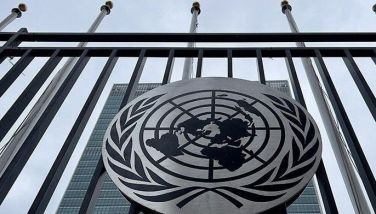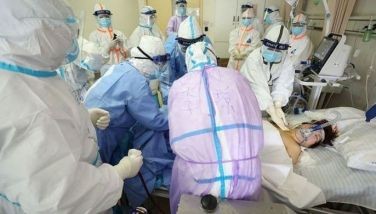Serbia's pro-EU populists win vote, initial projections show
BELGRADE — Preliminary unofficial results showed that the incumbent pro-EU populists have swept Serbia's parliamentary election on yesterday, leaving pro-Russia nationalists far behind.
The apparent triumph by Prime Minister Aleksandar Vucic's Progressive Party means Serbia will continue on its path toward European Union membership despite opposition from right-wing parties, which sought close ties with Russia instead.
The preliminary results published by the CESiD independent pollster agency say that the Progressives won 52 percent of the vote while their coalition partner the Socialists had 13 percent. Ultra-nationalist Radical Party had 7 percent, followed by pro-Western Democratic Party with 5 percent.
Djordje Vulkovic from CESiD said there might be slight changes from those partial results, but what is clear is that there can't be changes in the first two parties.
Vucic called the election two years early, saying he needed a new mandate to press ahead with tough reforms demanded by the EU as the country faces deep economic and social problems. But his opponents said he really wanted to tighten his autocratic rule and win another four-year mandate while he is still popular.
The populist Progressive Party led by Vucic, who has transformed from an extreme nationalist into a pro-EU reformer, was even before the vote slated to win most of the 250 seats in parliament.
Turnout was around 53 percent one hour before the polls closed, slightly higher than in 2014 when Vucic's party swept the vote.
Before the vote there were fears in the West that Serbia could tilt further to the right and toward Russia. Any rekindling of nationalism in the Balkans is considered more dangerous than in the rest of Eastern Europe because of the wars in the 1990s that claimed around 100,000 lives.
Western countries have sought to pacify Balkan nations by keeping them on track for EU membership.
"I am almost certain that we will carry on our European integration process and we will have to speed up the process of (EU) accession," Vucic said after voting on yesterday. "And of course, preserve our traditional ties with our friends (Russia) in the east."
Vucic added "that has to be one of the strategic, long term decisions of Serbian people and I'm not going to make any compromises with right-wing political parties."
Firebrand ultra-nationalist leader Vojislav Seselj returned to parliament after being acquitted of war crimes by a UN tribunal. Pro-Western opposition groups, fragmented and sidelined, struggled to reach the 5 percent parliamentary threshold.
Seselj has said the vote was a de-facto referendum on whether Serbia joins the "enemy" EU, or turns to some kind of a union with "our traditional ally Russia."
"We can form a coalition only with the parties that will give up European Union (membership) and choose integration with Russia," Seselj said as he cast his ballot on yesterday. "These elections are very important for Serbia."
While pro-Russian sentiments in Serbia are traditionally high because of close historic and cultural ties, many Serbs also like to see their country reach the economic and democratic standards of the rich EU nations.
"Our membership in the European Union is something we have to fight for, because there is no other way for us," said Blazo Mitric, a Belgrade resident, upon casting his vote.
- Latest
- Trending

































